Inheritance is a fundamental part of object-oriented programming that allows you to avoid repetitions and design your code professionally and clearly. When you write a database application, you might need some general database logic that you want to reuse for different database types. Here you will learn how to implement inheritance in Python to structure your classes efficiently.
Key Takeaways
Inheritance allows you to create a base class whose properties and methods can be inherited by derived classes. This reduces code duplication and improves maintainability.
Step-by-Step Guide
Step 1: Create a Base Class
In this step, you will define your base class that contains general properties for your database adapters. We will name it DBAdapter.
Start by defining the class and creating the initializer to pass the username and password. Here’s how to do it.

Step 2: Add a Default Method
To make your class more complete, add a method that simulates establishing a connection. This method might simply print a message to show that a connection has been made.
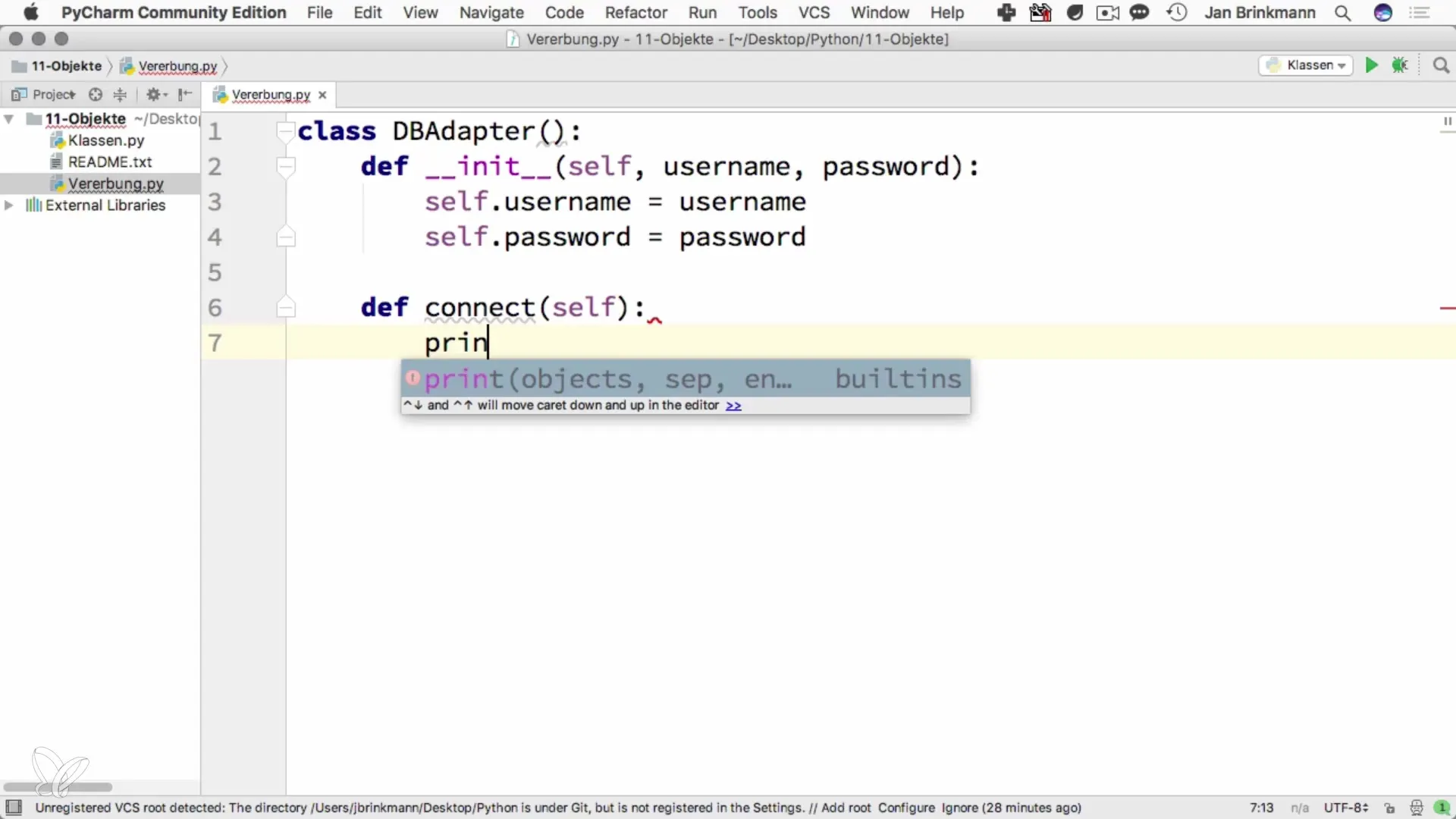
Step 3: Inherit from the Base Class
Now you will create a new class MySQLAdapter that inherits from your DBAdapter class. This is done by specifying the base class in parentheses after the class name.
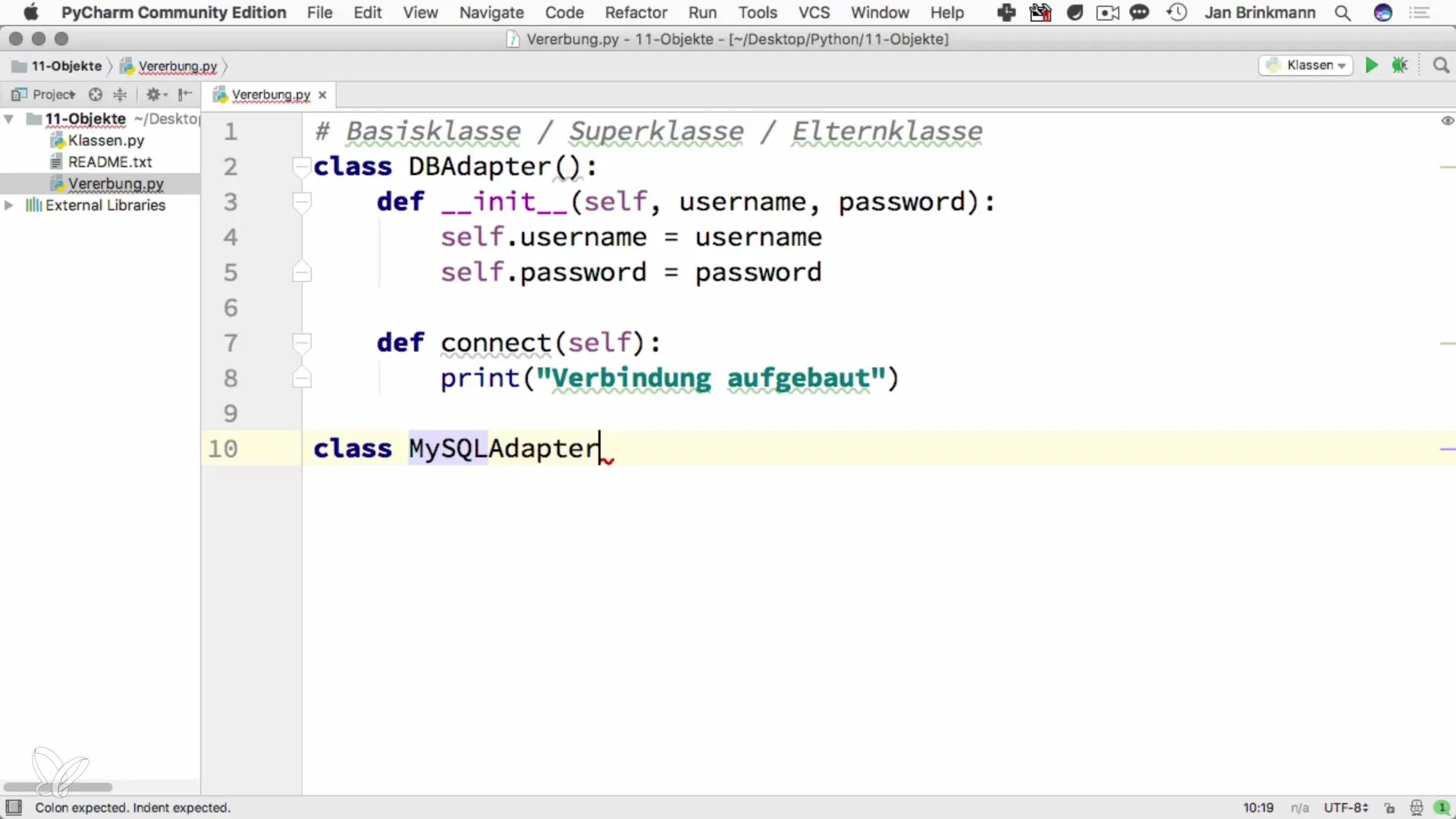
Step 4: Create an Instance of the Derived Class
Now that you have created the MySQLAdapter class, you can create an instance of this class and access the properties of the base class without any modifications.
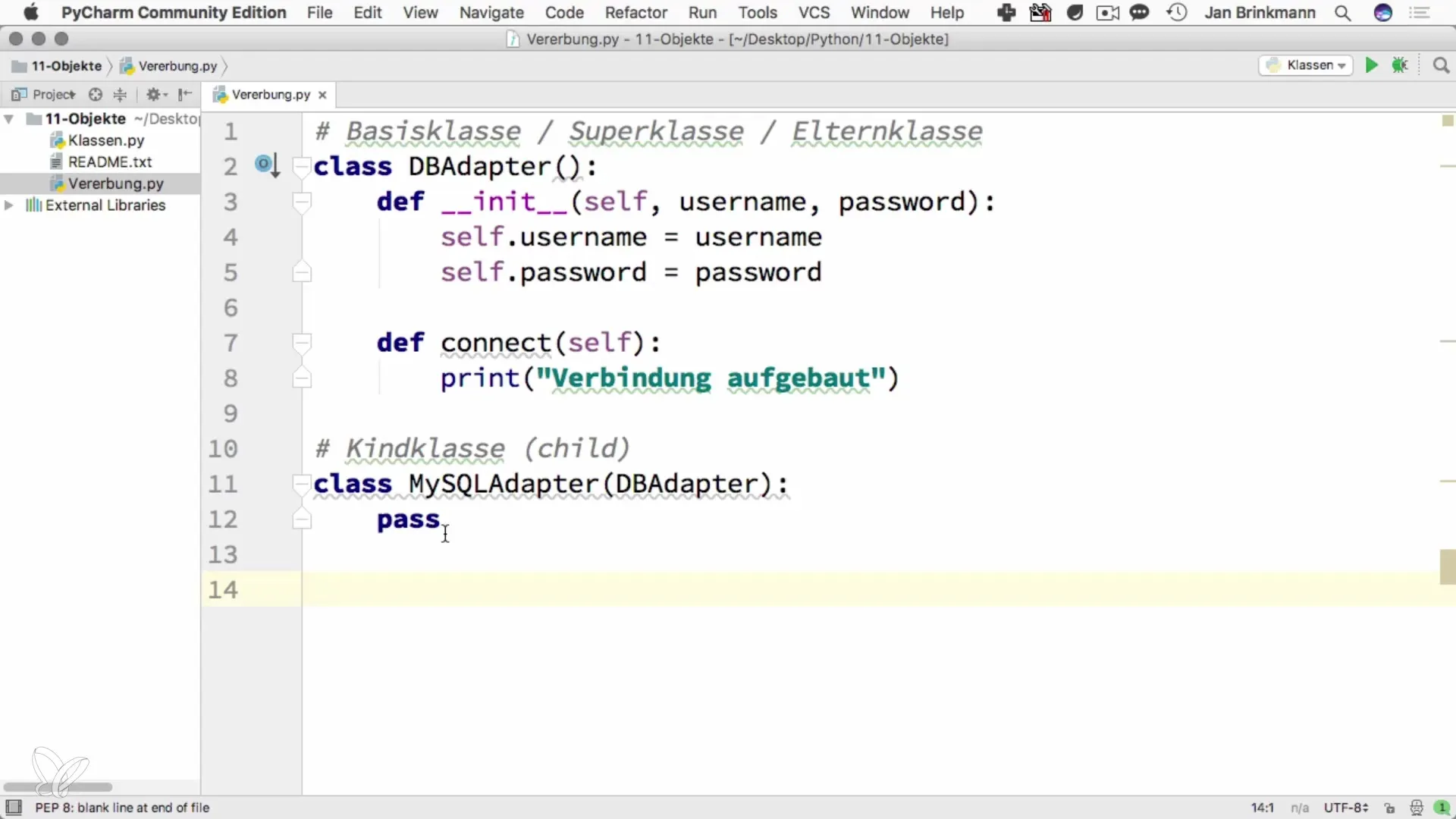
Step 5: Use the Inherited Method
Now you can use the connect method from the base class to establish a connection with the database. This illustrates how parent class functions can be utilized in the derived class.
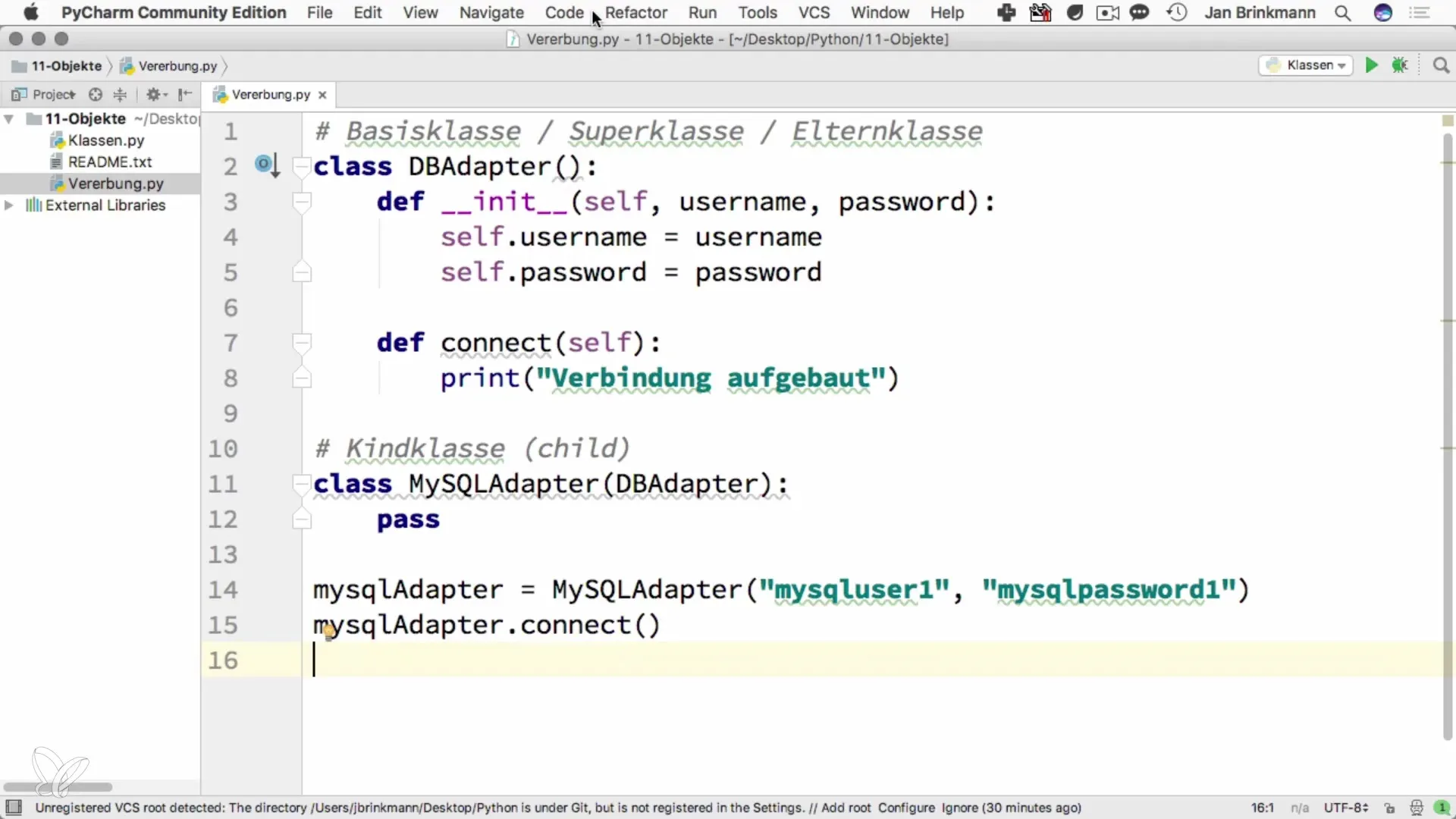
Step 6: Merging Functionalities
To fully take advantage of inheritance, you should also consider implementing specific methods for the MySQLAdapter class that provide additional functionalities.
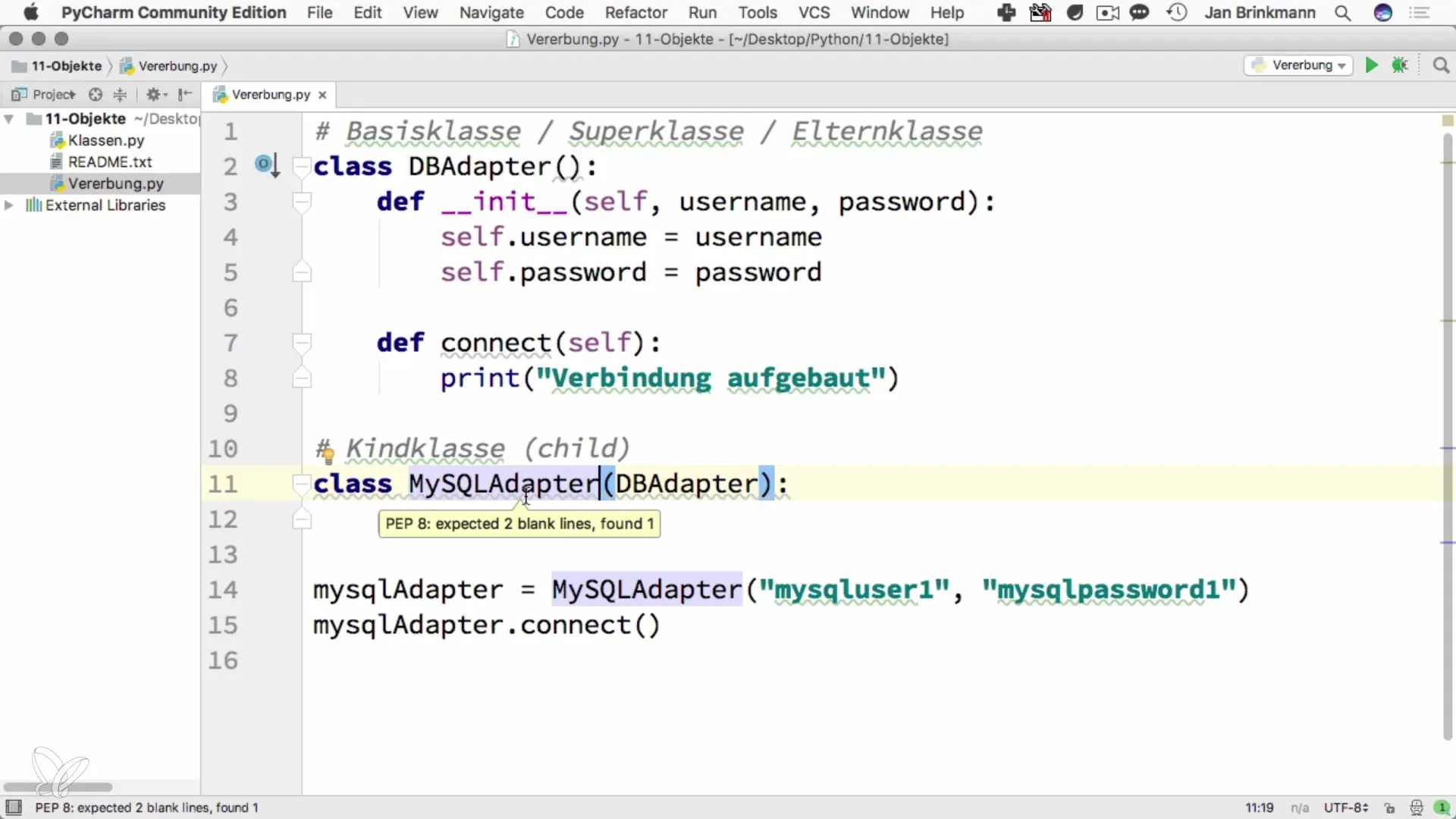
Summary – Utilizing Inheritance in Python
Using inheritance in Python allows you to create an efficient and maintainable software architecture. By creating a base class and one or more derived classes, you can reuse code and implement specific properties for various database types.
Frequently Asked Questions
What is inheritance in Python?Inheritance allows you to create a new class based on an existing class, thereby inheriting properties and methods from the base class.
How do I define a base class in Python?You define a base class by using the keyword class followed by the class name, and then define the methods and attributes within the class.
How do I call a method from the base class in the derived class?You can simply call the method in the derived class since it has access to all methods of the base class.
Can I inherit multiple classes from a base class?Yes, that is possible. You can create multiple derived classes that all inherit from the same base class.


